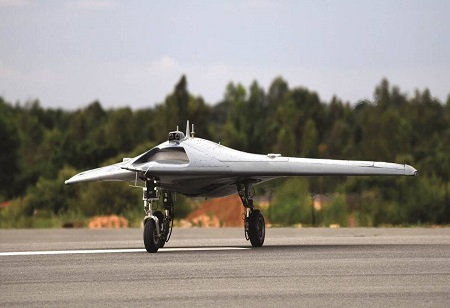
India currently stands as one of the most technologically progressive nations on the continent. It is currently on the road to be a global manufacturing hub for various electronic devices, and it was the sixth nuclear power in the world. National Technology Day was first celebrated on 11 May 1998 during the term of prime minister Sri Atal Bihari Vajpayee. It was conceived when India successfully carried out nuclear tests in Pokhran. It is to honor the scientists and engineers contributing to the nation's technological development.
Every year national technology day has a unique theme, for 2023 it is 'School to Startups-Igniting Young Minds to Innovate.' The current Prime Minister of India, Narendra Modi has inaugurated the program marking National Technology Day 2023, at Pragati Maidan, on 11th May 2023 at 10:30 AM. The program will also mark the commencement of the celebration of the 25th year of National Technology Day, which will be held from May 11 to 14, 2023. Awards are given to individuals who contributed to the field of technology on this day.
Indian IT Sector
The scope of business has widened with the advent of technology. The growth of our economy has been in tandem with the development of technology. If we look at all the dominating businesses in India, it is all tech services oriented, and the demand is not slowing down.
Prominent Indian IT figures have given their insights on the tech economy of India.
“Real-time data continues to grow by 30% per year, with overall data projected to grow to over 180 zettabytes by 2025. With this in mind, it’s critical these decisions be made by technologies that provide consistent performance at an unlimited scale and affordable cost. This meets the technical demand of processing at a massive scale while ensuring consumer demands are satisfied.”
“With the right tools and technologies, businesses can stay ahead of the curve and make informed decisions in the moments that matter. Ultimately, we believe that technology can continue to be a positive force world and that by working together to innovate, we can create a brighter, more connected future for all.” Says Aveekshith Bushan, Vice President, Asia Pacific & Japan.
As digital transformations have been adopted at an accelerated phase, competition in the free market has only gotten more intense without any compromise in quality. AI went from a buzzword to a mainstay in a short span of time. The room for growth in these sectors is phenomenal.
“In today’s digital landscape, it is crucial for organizations to stay current with emerging technologies and trends to stay ahead of the curve and remain competitive. The convergence of these technologies has propelled the use of Artificial Intelligence into mainstream business, and the potential of AI to revolutionize industries and drive growth is unparalleled. AI is beyond basic automation and insights. It can unlock insights from vast amounts of data and optimize decision-making processes. In the ITeS sector, AI-based applications can profoundly impact how people and processes work, how businesses engage with each other and how products or experiences are delivered. So, it is about intelligent Business & Technology decisioning and action involving lesser human intelligence. With greater research and innovation, AI can potentially engage with the consumers in a more targeted manner, thus improving end user experiences.
We at Wipro believe in technology for good and providing solutions to concerns that are fundamental to businesses and humans. We have been working in the AI space for many years and for more than two years have an established Generative AI CoE, working alongside technology partners, academic institutions driving research in advanced areas of AI to help customers leverage these technology advances to gain a competitive market edge.” Says Subha Tatavarti, Chief Technology Officer, Wipro Limited.
Indian Healthcare Sector
Healthcare quality has also soared with technology integration. We have seen decreased mortality rates of infants and mothers. The average life expectancy has shot up, as per World Bank data the life span of an average Indian in the 90s was 58.75 years and currently, it stands at 70.15 years. All this can be attributed to our healthcare systems and their corresponding policies.
“Innovation happens at the intersection of people, processes, and technology. Healthcare is no exception, as we observe key developments in the sector with technology at its core. This National Technology Day, I envision that the network of virtual and in-person care will become highly integrated and accessible with real-time and predictive healthcare information supporting care coordination throughout the patient experience. Also, AI-powered workflow optimisation will help increase operational effectiveness, freeing up healthcare professionals to concentrate on what they do best: patient care. The digital architecture of hospitals will in fact undergo major transformation with application of wireless technologies and interoperability, shifting the point-of-care from hospital to home.”
“To sum up, technology is not just transforming healthcare in India, it is revolutionizing it. Technology is set to revamp healthcare by enhancing experiences of patients and care providers, improve health outcomes, and cut costs of care for a more sustainable growth. It is the foundation for the merger of healthcare, innovation, and business administration, connecting all elements of the care continuum.” Says Arvind Vaishnav, Vice President, Head of Philips Innovation Campus (PIC) Bengaluru.
Overall, India has become a powerhouse which has drawn attention from all over the globe and will continue to do so at an accelerated phase. This day serves as a reminder to show how far it has come in the past 3 decades.